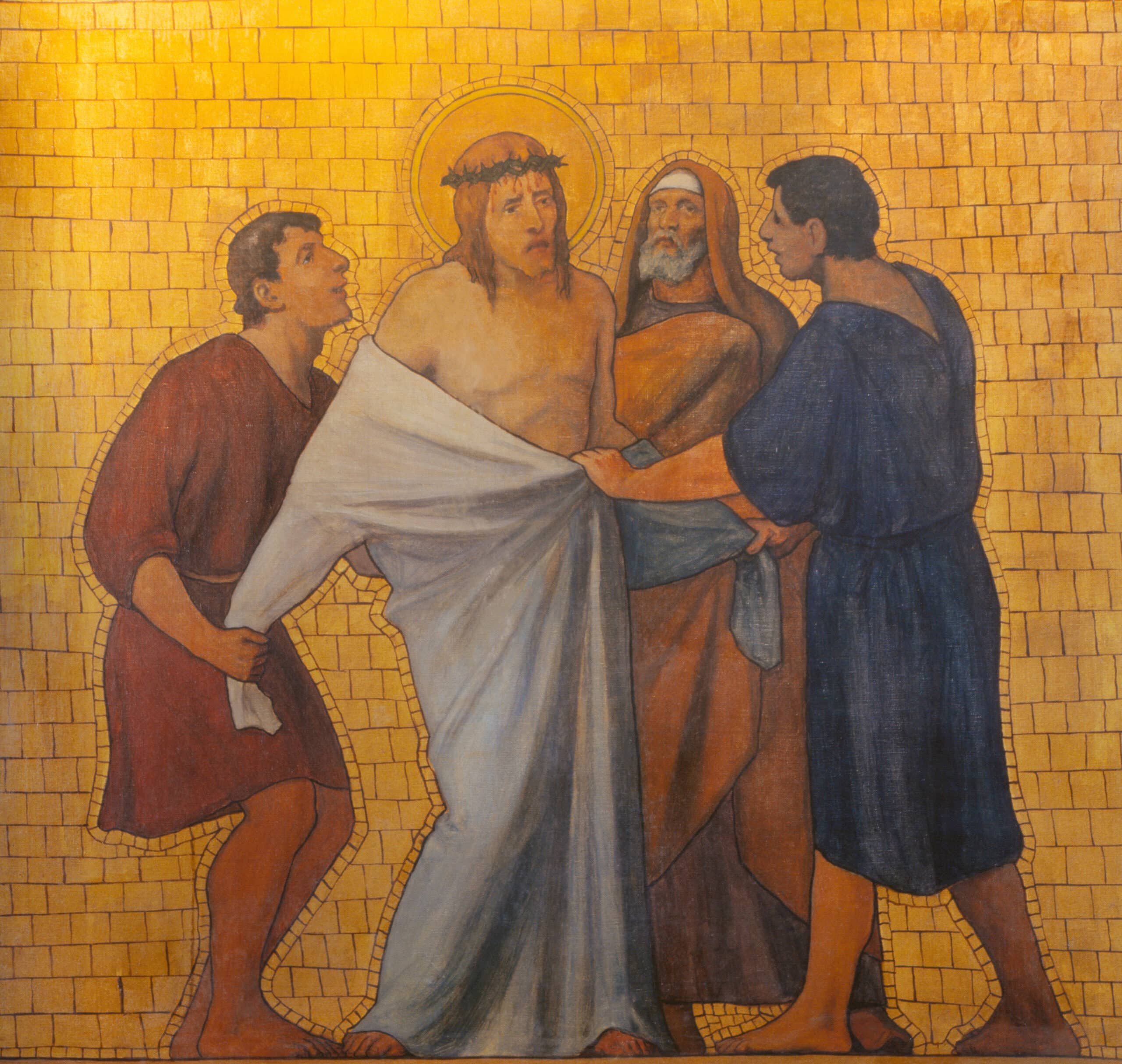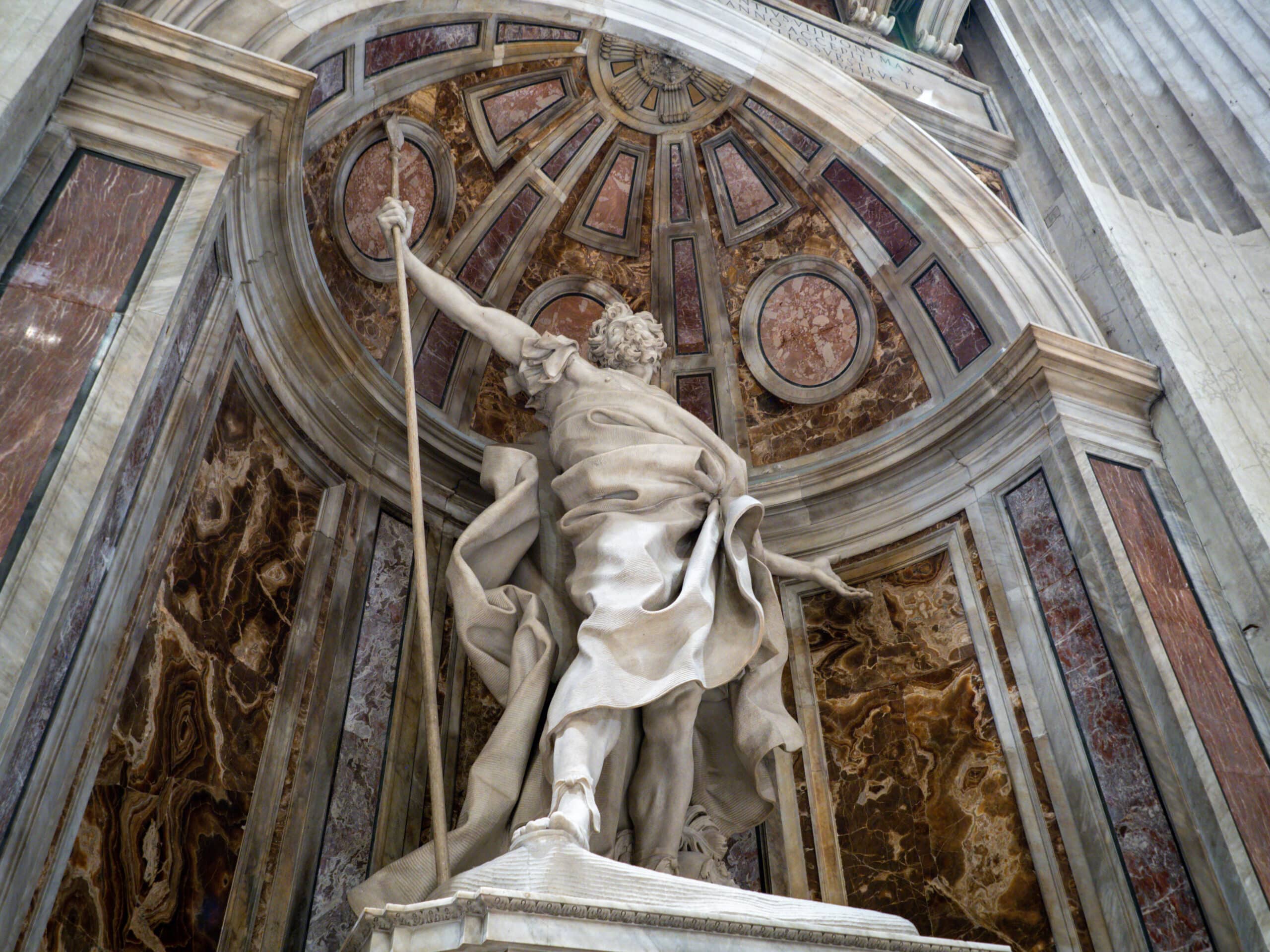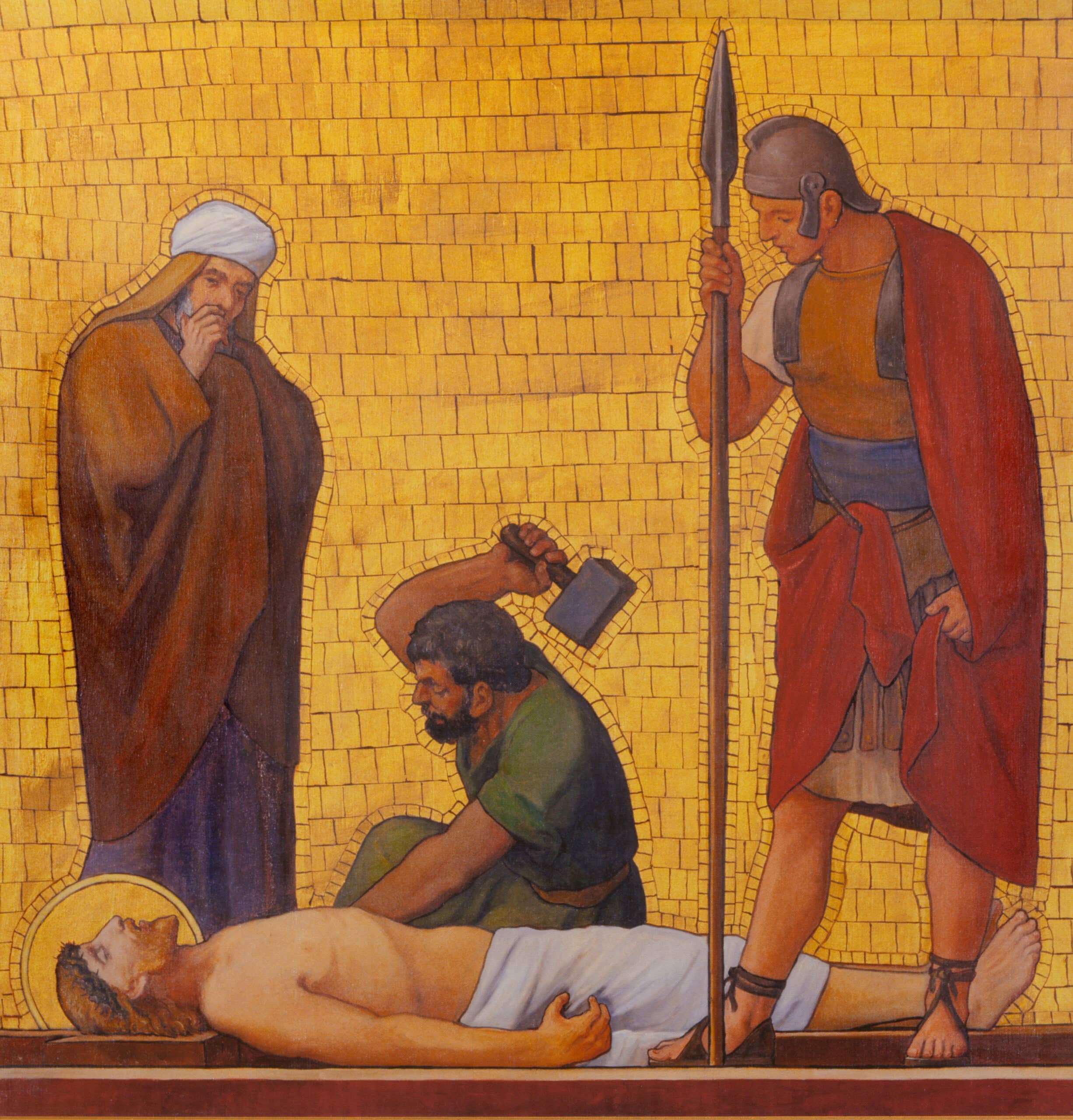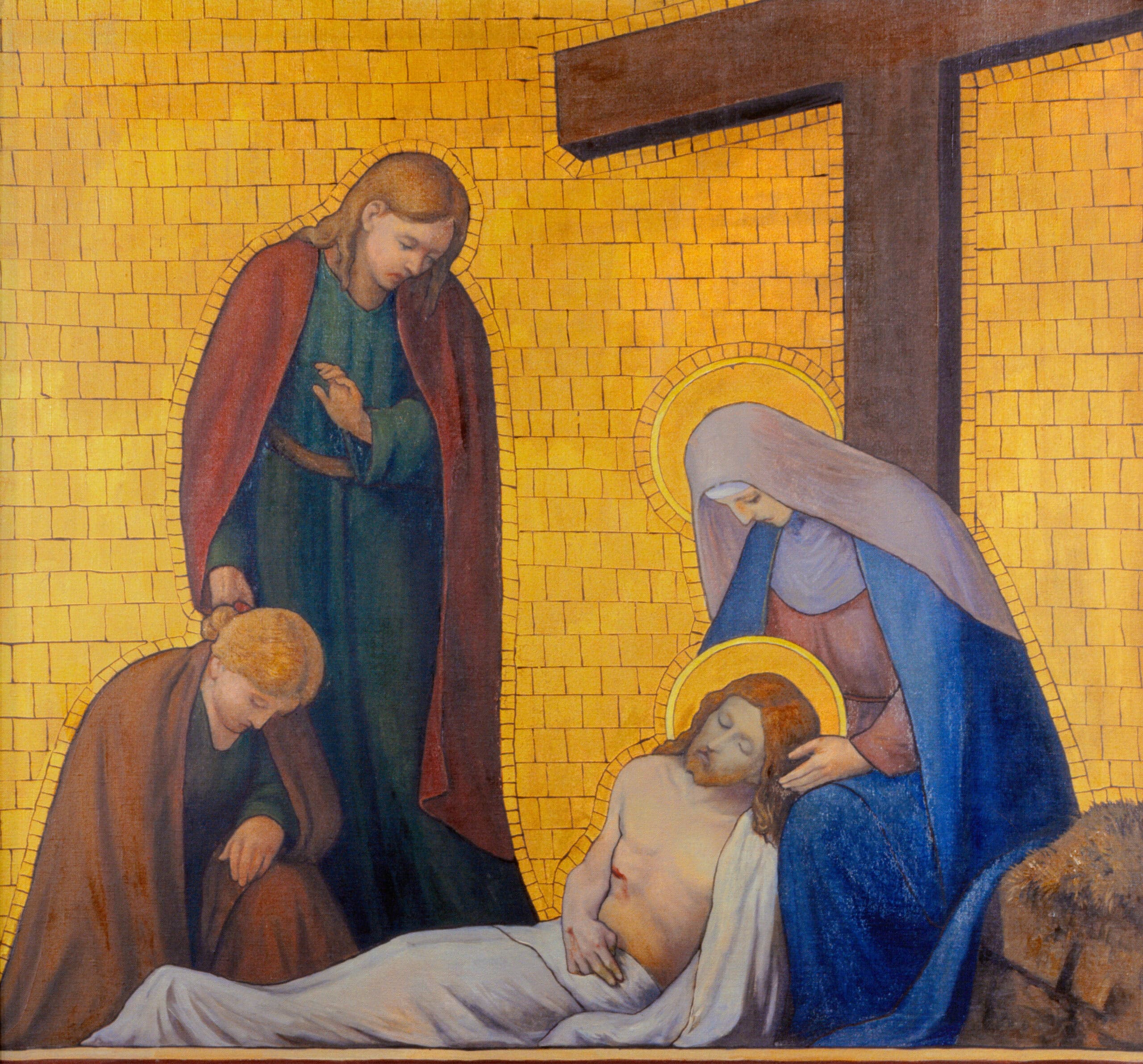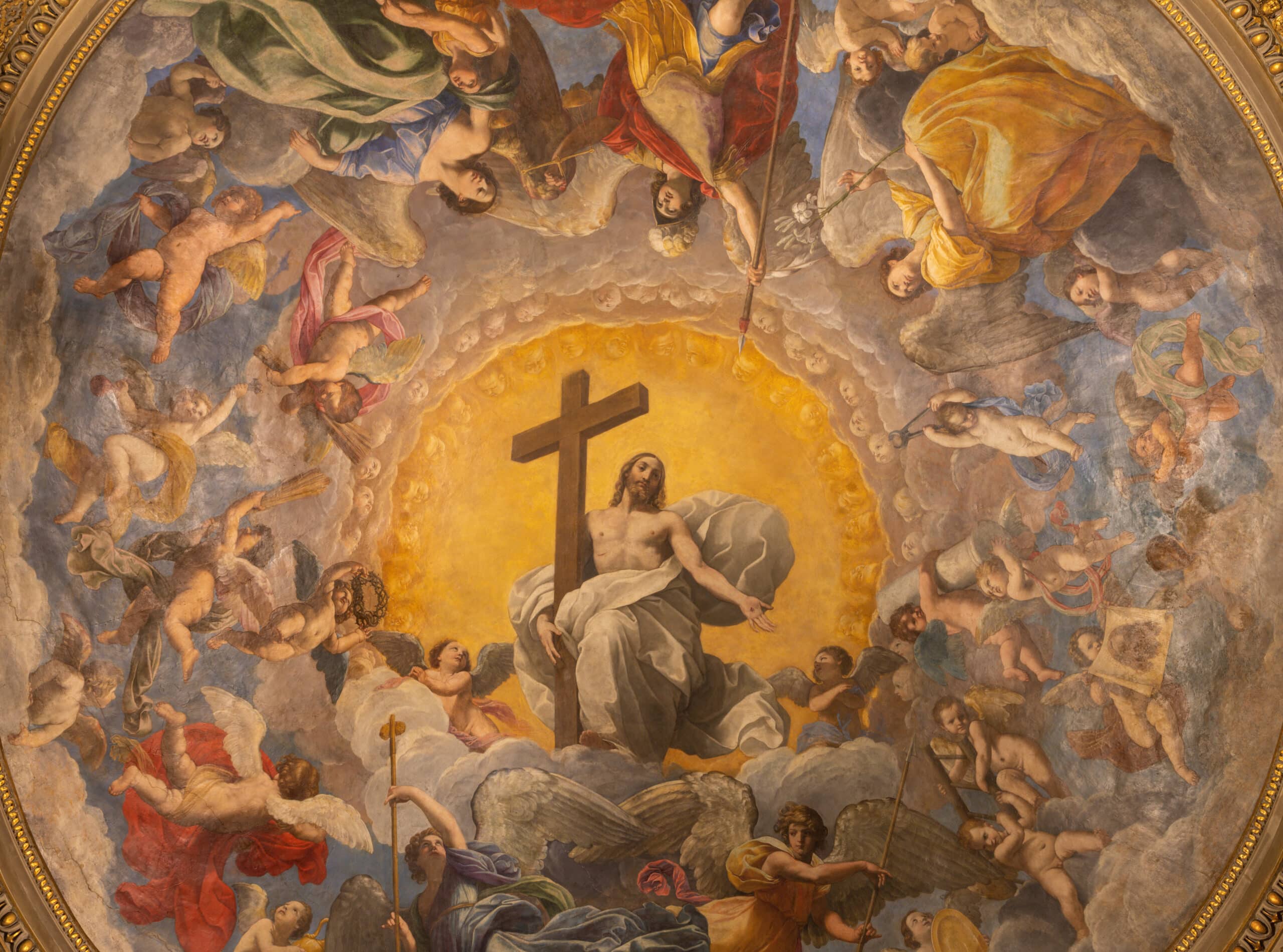During the crucifixion accounts in the Gospels, Roman soldiers play a prominent role. For the most part, they are crude people merely there to do their jobs, which are, in this case, to kill someone.
Luke tells us how these soldiers mocked and abused Jesus (Luke 23:36). John describes how the soldiers fashioned a crown out of thorned branches and placed on Jesus’ head while mockingly asked him if he was the King of the Jews (John 19:2-3). The soldiers slapped him and laughed at him, and then they gamble for his garments (John 19:24). These men were not the best of characters.
However, one Roman soldier stands out for his comments about Jesus during the crucifixion. As we celebrate Easter this month, we’ll take a brief look at this soldier and what he said, hoping to draw valuable lessons from him.
Separating Fact from Fiction
In a niche beneath the dome of Saint Peter’s Basilica in the Vatican City stands a statue of a Roman soldier known as Longinus.
Tradition teaches that he was the soldier who pierced Jesus’ side during the crucifixion. As is typical with many of the biblical characters who have little to no information given about them, over time the account of this Roman soldier has been embellished. Over centuries and as late as a millennium after the crucifixion, details were fabricated about this man. Some claim that he was the same soldier who declared Jesus to be the Son of God, one of the soldiers who stood guard at Jesus’ tomb, and that although blind, the blood from Jesus’ pierced body healed him, leading to Longinus’ conversion and ultimately his martyrdom.
Such legends should be taken with a grain of salt as they have no basis in biblical fact or eyewitness testimony. For this reason, we’ll stick to the biblical details of this soldier.
Jesus Crucified
The details of the crucifixion are familiar to us: Jesus is betrayed, arrested, tried, and falsely convicted. After being scourged—a process that typically ripped flesh off the victim’s body—Jesus was handed over to be crucified.
From the bloodthirsty Jewish leadership to the incompetent oversight of Pontius Pilate, the entire episode is sinister. Jesus’ friends have fled. Only a few women and one disciple have remained, and Jesus suffers alone: a solitary man with the weight of the world’s sins upon his shoulders.
Just Another Day
The soldier at the foot of the cross came to work just like any other day. To him Jesus was just another criminal. This soldier had no emotional attachment to these troublemakers. The soldier’s employer, the Roman Empire, had declared this man condemned. Broken bones and spattered blood were par for the course for this occupation.
And yet, with Jesus, this centurion witnessed something extraordinary.
Each Gospel records different aspects of the crucifixion so that when we put all four versions together, we have a comprehensive picture of what really happened. We have two Gospels that record the centurion’s words. Matthew tells us something astonishing. This hardened soldier recognized who Jesus was when he said, “Truly this was the Son of God!” (27:54).
A Unique Death
Why would this soldier make such a declaration? Up to this point, he has seen things that were not standard in a typical crucifixion. Matthew tells us that, upon Jesus’ last breath, “Then, behold, the veil of the temple was torn in two from top to bottom; and the earth quaked, and the rocks were split, and the graves were opened; and many bodies of the saints who had fallen asleep were raised” (Matt 27:51-53). Luke adds that the sun was darkened in the middle of the afternoon (Luke 23:44). So Jesus’ death caused an earthquake, darkness, and it even raised some of the dead! This was not just another day and certainly not just another crucifixion.

A Declaration of Faith
The centurion would have been a polytheist. He was comfortable believing in many gods. For him to say that Jesus was “a” son of God would be no big deal. There would be many in his pantheon of gods. Even the emperor, Caesar Augustus, called himself a son of God.
But for this centurion to say that Jesus was “the” Son of God is truly amazing. This is a confession of faith, as much as is the confession the thief on the cross made.
Isn’t this so often the case in the Gospels, that people who you’d never expect to be open to the Messiah actually profess genuine faith in him, while the very people who should have most recognized him, his own Jewish people, did not?
What Can We Learn from the Soldier at the Cross?
Coming to Jesus almost always brings a surprise. Put another way, Jesus’ ministry in our lives comes in unexpected ways. Trying to put him in a box, like “Jesus is going to have to do this,” or “I’m sure Jesus will act in this way,” almost always turns out differently than we expect it to turn out. Why? Because Jesus is the sovereign Lord of glory (1 Cor 2:8), the one who is the wisdom of God (1 Cor 1:24).
Any sinner who thinks they have God all figured out needs to get their head examined! The day you declare you perfectly know the mind and intentions of God is the day you arrogantly declare that you, as a sinner, share the same depth of wisdom as God. Prepare to be surprised if you have such a bloated ego. This is why God declares,
“For my thoughts are not your thoughts, nor are your ways my ways,” says the Lord. “For as the heavens are higher than the earth, so are my ways higher than your ways, and my thoughts than your thoughts.” (Isa 55:8-9)
The Power to Save
I am also confident that the way in which Jesus went to his death impressed this soldier like no other crucifixion. Jesus did not complain; he did not plead for his life as so many others did. In fact, he prayed for others as he hung on that cross! He was kind to those crucified along with him. The cross has the power to save (1 Cor 1:18)!
This Easter, let us be reminded that Jesus, who is fully God, has complete control of all things. Even as he hung on the cross, he continued to exercise his divine will. And he still does so today.
Praise his holy name!
Victor Kuligin is an international author and speaker who served as a missionary in Africa for 24 years. He is the author of several books: Meeting Jesus, Ten Things I Wish Jesus Never Said, The Language of Salvation, and Snubbing God are available on Amazon. He can be reached at [email protected].
{{cta(‘ef3162a6-b350-492f-9968-8cd79f05002f’,’justifycenter’)}}
{{cta(‘beb57da0-56af-4364-b695-f272b30394cc’,’justifycenter’)}}

